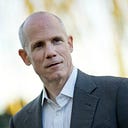Member-only story
How Can U.S. and Japanese Healthcare Costs Be So Insanely Different?
How many Americans would walk barefoot over hot broken glass to get to a healthcare system like Japan has? How much do you already know about Japan’s healthcare system?
Related and recent articles
• Has U.S. Healthcare Really Become a Mob Protection Racket?
• My Health Insurance Company Asked for Feedback on My Specialist. I Blew My Top.
• Is this the Dirty Little Secret Why Americans See the Doctor Less Often Than Japanese?
• A Friend Texted to Ask “Who I Favored” for 2024 and Hated My Answer
• Quick and Easy Way to Convert from Japanese Yen to U.S. Dollars
• Did This Happen by Accident to 89% of America’s Stock Market Wealth?
(Subscribe to receive email notifications when I post new articles.)
The U.S. and Japan are literally on opposite sides of the planet, especially when it comes to healthcare.
There’s no question that healthcare costs are dramatically higher in the U.S. than in Japan. This has been true for decades.
It’s also a fact that when it comes to one of the biggest picture metrics of health there is — life expectancy — Japanese live years longer than Americans. This, too, has been true for decades.
(For more details on healthcare costs vs. life expectancies in each country, this article goes in-depth: “Life Expectancy vs. Healthcare Costs in the U.S.”)
But what does this look like on a day-to-day basis in Japan?
What could be causing such discrepancies between these two countries?
For help with this question, I turned to a Tokyo-based YouTuber named Paolo and a video he released over 4 years ago.
I first saw this video on the Paolo from Tokyo YouTube Channel in early 2019.
Having lived in Japan myself, I instantly recognized a great piece of work like his 7-minute “How Much I PAY at a Japanese Hospital on Japan’s Healthcare System” video when I saw it.
